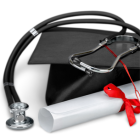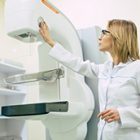Diploma
in Surgical Technologist
Program Overview
The fundamental purpose of surgical technologist diploma program is to equip students with the skills required to work as a member of the surgical team in clinics and hospitals along with registered surgeons and nurses in the operation theatre. Medical terminology, human anatomy and physiology, and the foundations of pharmacology, microbiology, and immunology are all covered in the diploma in surgical technologist program curriculum. Ethics and effective communication techniques are taught to students in order to improve teamwork in operating rooms. Students learn the fundamentals of surgical instruments, aseptic techniques, draping techniques, and also surgical site management.
Program Learning Outcomes
Students of our surgical tech diploma programs will be able to:
- Grasp the concepts & principles of human anatomy, physiology, pathophysiology, pharmacology, and also infectious processes.
- Understand the fundamentals of safe patient care in preoperative, intraoperative, and postoperative environments.
- Demonstrate the Surgical Technologist’s interdependence with other team members as well as ancillary service providers.
- Through practice and careful evaluation in the clinical environment, develop and apply essential surgical assisting skills.
- Apply the asepsis principles accurately to a variety of regular surgical experiences.
- In every surgical setting, follow the Standard Precautions and other officially recognized safe practice standards & guidelines.
- Recognize the wide variety of patient’s needs and how the patient’s personal, physical, emotional, and cultural experiences may affect the way in which medical care is rendered.
- Demonstrate ethical/professional behavior in your performance, attitude, and personal interactions.
Program Program Career Opportunity
The surgical tech diploma program at Stellar Career College opens a wide array of opportunities for students that include, but are not limited to, the following:
- Surgical Technologist
- Sterile Processing Clerk
- Surgical Technologist Lead
- Sterile Processing Technician
- Certified Medical Assistant
- Orthopedic Technologist
- Clinical Nurse for Operating Room
- Radiology Practice Coordinator
- Surgical Assist Coordinator
- Certified Surgical First Assistant
Program Course Breakdown
Diploma in Surgical Technologist program will include the following courses:
Technical Courses – 62 Quarter Credits Hours
Program Class Schedule
Weekly Orientation Schedule:
Monday: 3 PM (virtual)
Tuesday: 11 AM (virtual)
Wednesday: 3 PM (virtual)
Thursday: 11 AM (virtual)
Friday: 10 AM (virtual)
Tentative Class Schedule:
Monday: 5:00 – 9:00 PM (on campus)
Wednesday: 5:00 – 9:00 PM ( on campus)
Thursday: 5:00 – 9:00 PM (virtual)
Admission for all the Programs is Now Open!
Required On-Campus Orientation: Week of May 27th, 2024
Meet the Faculty: Week of June 24th, 2024
First Day of Classes: Week of July 29th, 2024
Program Admission Requirements
For admission into surgical technologist certificate program Indiana, applicants who have not completed at least 30 quarter college credits or equivalent will have to take and pass (by scoring 70% or higher) Stellar Career College placement test prior to enrollment.
Applicants for admission into the MRI, Radiology, NICVS, or Surgical programs must take and successfully pass the Stellar Career College Entrance Exam if they don’t already have at least 30 college credits. The Entrance Exam is available to take online.
- Enrollment is open to students every day of the week. They will also be notified about the start date after confirmation of their registration.
- Applicants must submit a high school diploma, General Education Diploma (GED), a college transcript, or an equivalent certificate.
Registration
Applicants must fill out and sign an enrollment agreement that outlines their obligations toward the institute.










